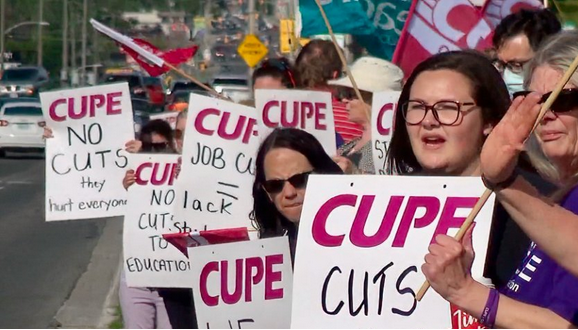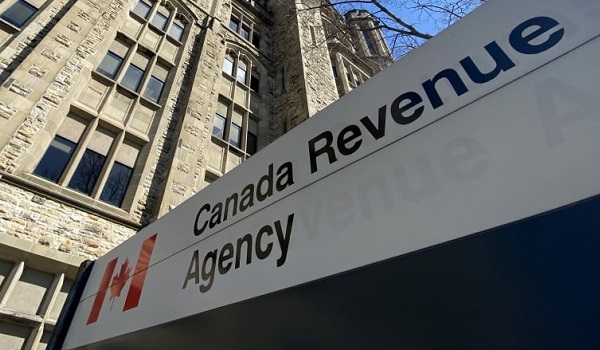Unions warn of labour turmoil as thousands of contracts due to expire
Following a year of high-profile strikes and wage gains, Canada should brace for more turmoil and work stoppages this year in both the public and private sectors, labour experts and unions say.
“Unionized workers are demonstrating a greater willingness to strike post-pandemic,” said Larry Savage, a professor of labour studies at Brock University. “The combination of high inflation, low unemployment and the cost-of-living crisis have created conditions for heightened union militancy.”
According to a Scotiabank report published in January, “strikes and aggressive wage settlements will persist,” as some one million workers in Ontario alone — almost 15 per cent of all workers — will see their collective bargaining agreements expire between 2024 and 2026.
Expect the heat to rise as negotiations ramp up or continue for Air Canada pilots and flight attendants, Via Rail workers, LCBO workers, and more than 70,000 health care workers.
Here’s where major negotiations stand so far:
LCBO: Expect a ‘significant battle …’
The Liquor Control Board of Ontario’s contract expires March 31. The Ontario Public Service Employees Union (OPSEU) — which represents around 10,000 LCBO workers in retail and warehouses — delivered a notice to bargain in January

“We have hundreds of organizers across the province, in retail and warehouses, gearing up for what we know is going to be, a significant battle there,” said OPSEU president J.P. Hornick. “They also have their wage reopener after Bill 124 has been found for the second time, to be unconstitutional.”
Ontario’s Bill 124, which capped public sector salary hikes to one per cent a year for three years, was found by the Court of Appeal for Ontario on Monday to have violated collective bargaining rights for workers, including nurses and teachers.
Unions hailed the ruling as a huge victory for workers’ rights with Premier Doug Ford’s government announcing it would repeal the law immediately.
Hornick said a major goal for OPSEU is to fight back against Ford’s efforts to privatize the LCBO and alcohol sales.
“What we’ve seen with Ford is these attempts to … keep nibbling around the edges of all of the public services,” Hornick said.
Healthcare: ‘A crisis unfolding …’
Ontario health care workers are already at the bargaining table and have been for several months.
Three unions — CUPE’s Ontario Council of Hospital Unions, SEIU Healthcare and Unifor — are “jointly in bargaining as we speak,” CUPE Ontario president Fred Hahn said. Together they represent more than 70,000 hospital workers in Ontario.
“There’s a crisis unfolding in our health care system,” Hahn said.
The tri-union coalition is urging a five per cent funding increase beyond inflation from the Ford government to establish fair compensation, which they say is essential for recruiting thousands of workers and expanding hospital beds amid a 10 per cent staff turnover rate exacerbated by funding cuts and wage restraints.
The bargaining is ongoing, Hahn said.
Planes and trains: ‘Big year for rail agreements …’
CUPE also has an agreement with Air Canada flight attendants which expires in 2025, but bargaining is expected to start this year.
“Our Air Canada members are just finishing a very long collective agreement,” Hahn said, adding that the previous collective agreement was a decade long.
More than 10,000 Air Canada flight attendants represented by CUPE are seeking better wages and compensation for unpaid work according to Hahn.
“Flight attendants are only paid for the time that the aircraft is in the air,” he said. “If a flight is delayed by four hours, that means it’s four hours of their day” that goes unpaid.
Air Canada pilots, represented by the Air Line Pilots Association (ALPA) are also in bargaining, calling for better pay and working conditions. Air Canada pilots last May “invoked a clause” to end their 10-year collective agreement a year early and initiate bargaining a new one over the summer. Since landing on a 10-year collective agreement in 2014, the pilots have received a two per cent pay hike each year.
Bargaining will likely continue until the summer, said Tim Perry the Canadian president of ALPA.
“We’ve agreed with the Air Canada management team to engage a private mediator,” Perry said. “That phase will last until at least June.”
Unifor will also be bargaining with Via Rail this year with some 2,400 workers’ contracts expiring at the end of 2024.
“This will be a big year for rail agreements,” said Unifor’s national president Lana Payne in a previous interview.
Telecoms and media: Members ‘thrown out of work …’
Payne also has her sights set on Canada’s telecommunication and media sectors. Unifor Local 87-M represents media workers across southern Ontario, including the Toronto Star.
Bell Canada’s contract with Unifor, representing nearly 4,000 crafts and services employees, is set to expire on Nov. 30. This will follow Bell Canada’s announcement in February that it will slash 4,800 jobs across the country, it’s largest restructuring in almost 30 years.
“Executives and shareholders are doing just fine while our members are being thrown out of work, including, once again, in the media,” said Payne at the time, whose union represents 800 of the workers being laid off.
Negotiations are also underway between the Canadian Media Guild (CMG) and the CBC “as we seek a deal before the current collective agreement expires on March 31, 2024,” the CMG said in statement in January. The CMG represents some 4,000 employees at the CBC.
With files from The Canadian Press.
This article was reported by The Star














